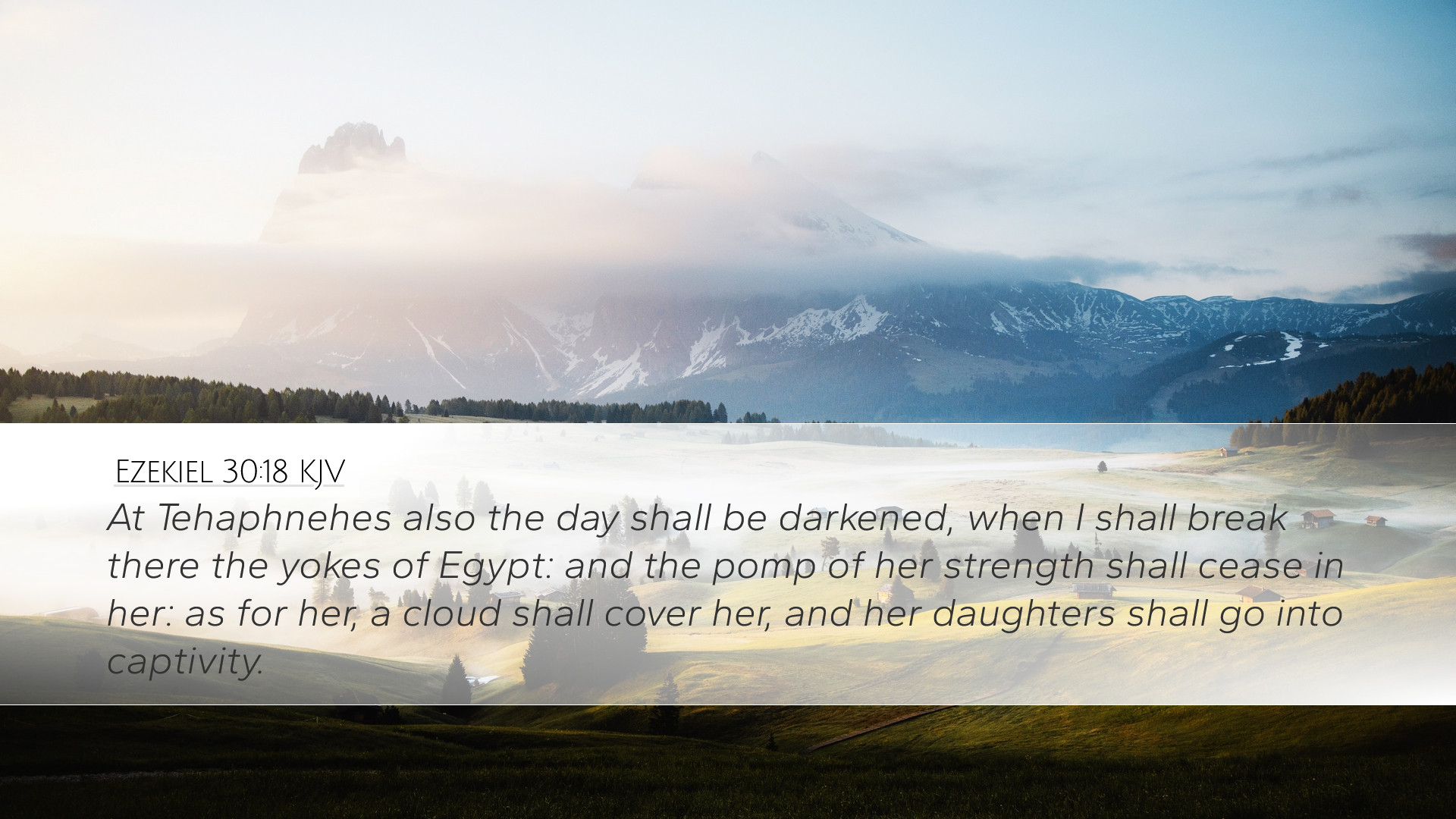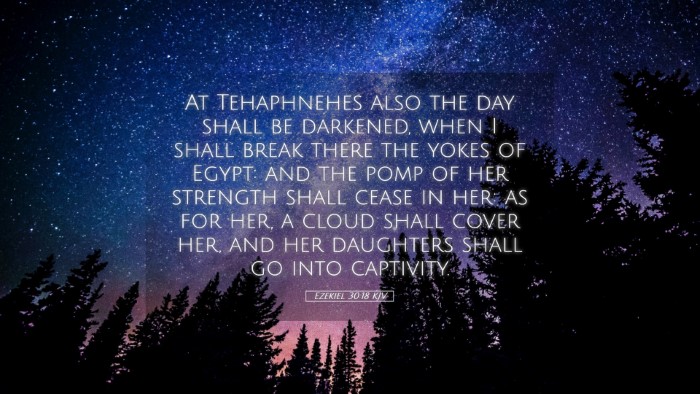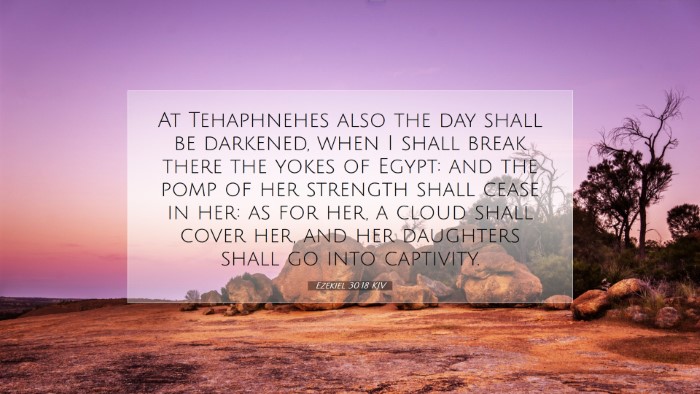Ezekiel 30:18 Commentary
Ezekiel 30:18 states: “At that time, the day shall be darkened by the Lord. I will bring the fierce wrath of the nations upon you.” This verse occurs in the context of a prophetic message regarding the impending judgment upon Egypt and its allies. Through this commentary, we will explore insights from esteemed public domain commentaries, understanding the theological implications and the historical significance of this passage.
Contextual Overview
The Book of Ezekiel is primarily a prophetic work, emphasizing God's sovereignty, judgment, and eventual restoration of His people. In Ezekiel 30, God announces His judgment against Egypt, a nation well-known for its pride and idolatry. This chapter is marked by vivid imagery and strong language, depicting the severity of the impending doom.
Verse Analysis
Textual Insights
The phrase “At that time” sets the stage for a specific moment in history where God's intervention is both necessary and imminent. The “day shall be darkened” symbolizes divine judgment and the withdrawal of God’s favor. According to Matthew Henry, this darkness signifies the removal of light and truth, aptly illustrating the spiritual state of Egypt.
Theological Implications
Henry posits that God’s darkening of the day reflects His righteous wrath against sin and idolatry prevalent in Egypt. This aligns with the larger biblical narrative where God often uses natural phenomena to signify His displeasure (cf. Joel 2:31, Amos 5:18-20).
Historical Context
Ezekiel prophesied during a tumultuous period of Israel’s history, marked by the Babylonian captivity. Albert Barnes highlights that the prophecies against Egypt serve not only as a warning to the Egyptians but also as a comfort to the Israelites, assuring them of God’s justice over their oppressors.
Interpretation of Divine Judgment
God's wrath is described as "fierce," indicating a potent and unrelenting force. Adam Clarke notes that this conveys the seriousness of the nation's sin and God’s unwillingness to overlook their transgression. It serves as a stark reminder of the consequences of deviating from God’s commands.
- Spiritual Blindness: Egypt, in its idolatry and reliance on false gods, is portrayed as spiritually blind, which leads to its downfall.
- Divine Sovereignty: God's assertion of bringing forth this judgment underscores His ultimate authority over nations, emphasizing that no kingdom is beyond His reach.
- Call to Repentance: Through Ezekiel’s proclamations, there exists an implicit call for both Egypt and Israel to return to true worship.
Prophetic Implications
From a prophetic standpoint, this verse can also be seen as a foreshadowing of final judgment. The darkness symbolizes the spiritual desolation that results from rejection of God. Scholars assert that this theme of divine judgment is prevalent throughout Scripture, especially as it relates to nations that oppose God's people.
Practical Application for Today
The Nature of God’s Judgment
Understanding Ezekiel 30:18 allows pastors and theologians to reflect upon God’s character—His holiness and justice. It urges contemporary believers to consider the seriousness of sin and the reality of divine retribution, which still holds relevance today.
Encouragement for the Righteous
Moreover, the assurance that God defiantly stands against the injustice reminds the faithful of His unwavering protection and vindication. As Barnes suggests, God’s intervention on behalf of His people serves as a source of hope for those facing oppression.
Calling for Vigilance
As students and scholars study this passage, it brings forth the necessity of vigilance against spiritual complacency—an ever-relevant challenge within the church. Reflection on the consequences of Egypt may prompt believers to examine their own lives.
Conclusion
Ezekiel 30:18 reveals profound truths regarding God’s judgment and the fate of nations that turn from Him. With insights drawn from Henry, Barnes, and Clarke, we are reminded of God’s unyielding justice, the consequences of sin, and the hope found through repentance. This passage calls for introspection, a commitment to holiness, and a confidence in God’s redemptive purposes for His people even amidst dire circumstances.


